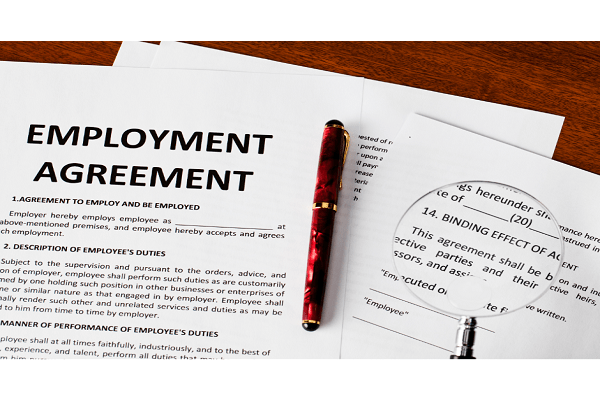
KEEPING UP TO DATE
Employment agreements
26 July 2022
Employment Agreements
When hiring people into your business one of the most critical pieces of the process is ensuring you have a written employment contract. The relationship between employee and employer is fundamentally contractual, and all employees and contractors should have the correct employment agreement in place. The employee will also be covered by National Employment Standards and the relevant award for their role, however the benefit of having an individualised agreement means you can outline specific relevant terms not covered by the Fair Work Act.
A recent number of high court hearings have highlighted the terms expressed in some individual employment agreements thus proving the importance of having the correct agreement in place for your employee. Employment agreements create clarity and reduce the occurrence of disputes as both parties are clear on the expectations and terms of employment.
Employment agreements don’t have to be complex and full of legal jargon. However, they need to ensure they meet the needs of your business and the roles you are employing. Seeking professional advice is highly recommended when creating your employment agreements.
What needs to be included in the agreement?
Several things that need to be covered in an employment agreement to protect both you and your employee.
- The full name and address of the new employee
- The employer’s company and trading, address, and ABN (Australian Business Number)
- Date of the agreement
- Length of the probation period
- The Position and title of the role the employee is being hired to do
- Principal duties, not listed in the contract but needs to point to the Job Description
- Introduction to the companies’ policies and procedures
- The employee’s main place of work
- The employee’s weekly hours
- The employer’s normal span of hours of operation
- Remuneration and superannuation contributions
- Any other inclusions or incentives
- Leave entitlements
- Conflict of Interest and non-compete
- Confidentiality agreement
- Termination of employment including notice periods
- Post termination restraint clause
- Type of employment
- Award and grade if applicable
- Employment commencement date
- State governing law
- Signature of the employer
- Request for signature of employee
Should I review my employment agreements?
Yes, employment legislation changes regularly. It is best practice to adjust your contracts accordingly ensuring all parties are clear about any changes.
Do different types of employment require different employment agreements?
Yes. You will need to ensure you have specific contracts with adjusted terms when engaging Permanent, Casual or Contractor staff. It also necessary to make the relevant adjustments when hiring Fixed Term and Maximum term positions.
When should my new employee receive their contract?
As soon as they have accepted their offer of employment with you. You need to ensure you have a signed copy saved on file prior to their first day. When sending the contract, it is recommended that you also include:
- Their Job description
- A letter of offer
- The fair work statement
- And any other necessary onboarding documents to ensure a smooth start in their role.
Employment agreements can save you valuable time and money as well as give your employees a clear understanding of the expectations and terms of their employment. Whether you are looking into your current employment agreements, are just starting out and about to hire your first employee, would like a review of your current contracts or have any questions please contact us for assistance.
More News? Sign Up for our e-Newsletter?